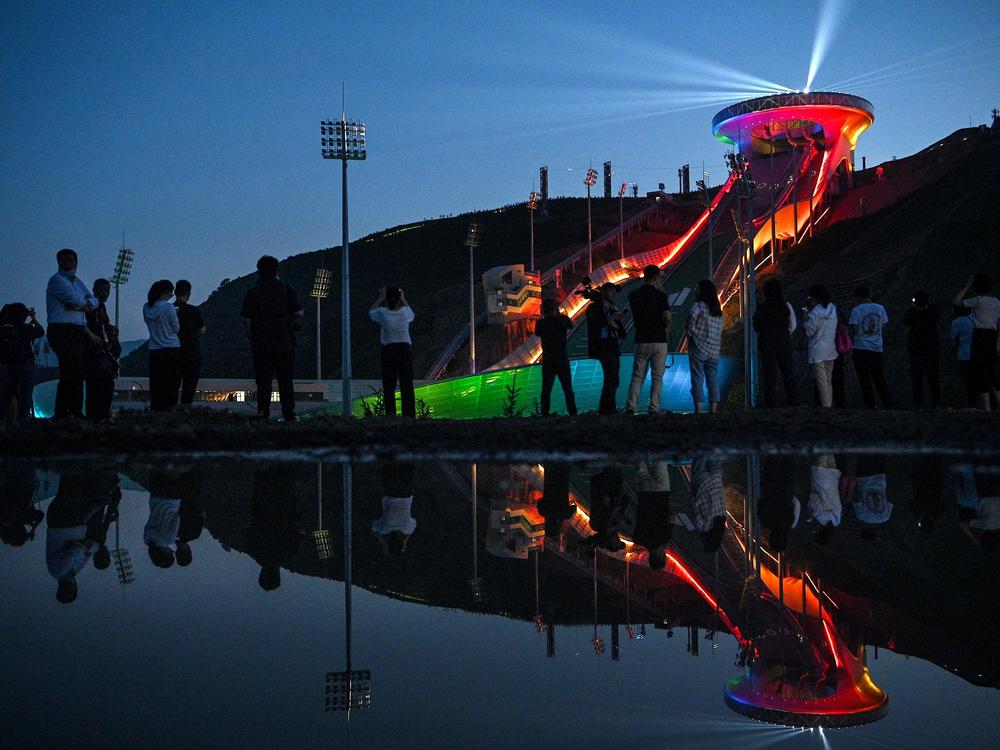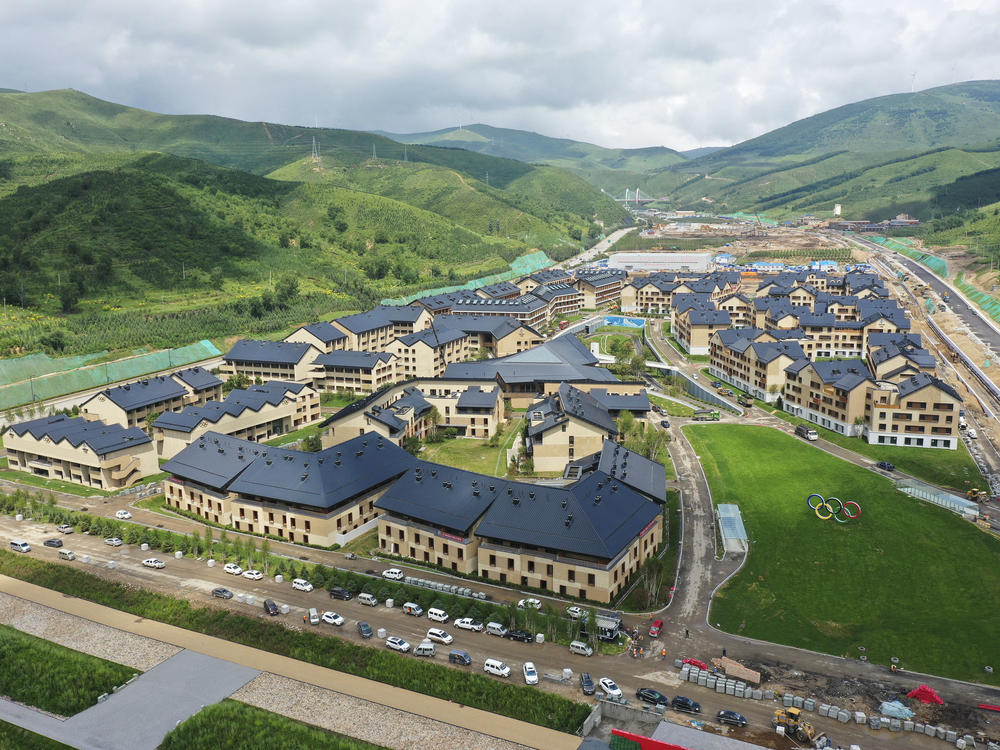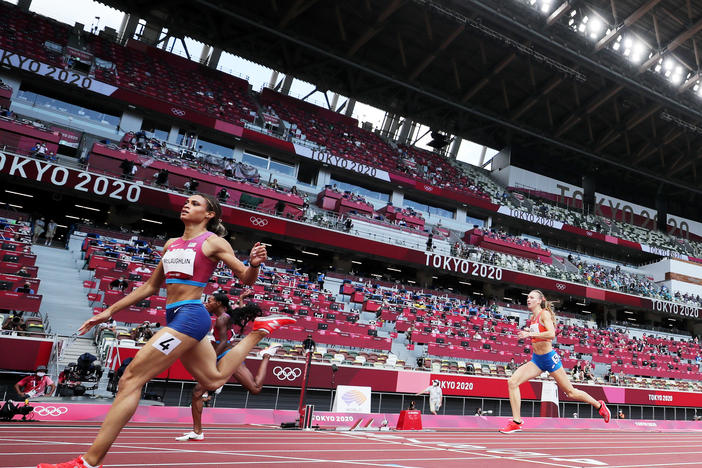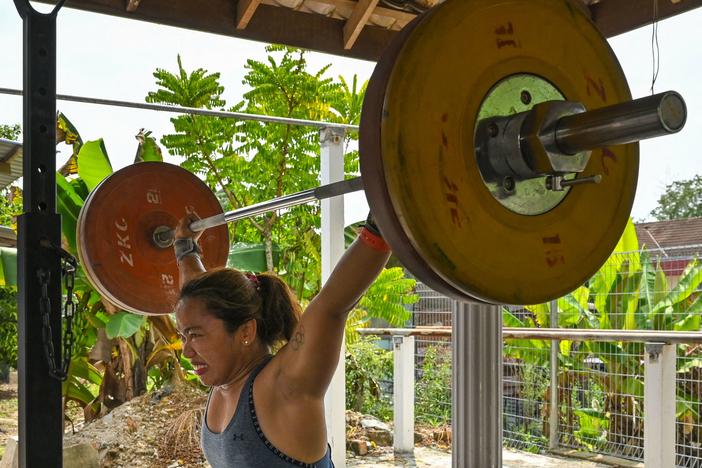Section Branding
Header Content
Winter Is Coming: The Beijing 2022 Olympics Start In Less Than 6 Months
Primary Content
We're still in the final days of the Tokyo Summer Olympics — but thanks to the one-year delay of these Games, the Beijing 2022 Winter Olympics are now less than six months away.
"All venues and facilities for Beijing 2022 are close to complete," organizers said in a recent update.
Those structures range from luge tracks and skating rinks to snowboard courses. The 12 ice and snow venues are scattered between Beijing and neighboring Hebei province, which includes a large mountain resort.
Test events were held at those venues this year to fine-tune them for competition, organizers said. While many facilities are brand-new, some may look familiar: The famous "Water Cube" that hosted Olympic swimming in 2008, for instance, is now the "Ice Cube," to host curling.
The coronavirus will once again affect the Olympics
With the COVID-19 pandemic showing few signs of abating, Beijing Olympics officials are working to "make improvements based on epidemic prevention and control policies," said Liu Yumin, head of venue planning and construction for the organizing committee.
Chinese officials are attending the Tokyo Olympics in part to monitor the effectiveness of coronavirus safety measures, according to the committee.
The status of the Tokyo Olympics was once in doubt, and the one-year delay due to COVID-19 wreaked havoc on athletes' training and qualifying tournaments. In contrast, International Olympic Committee President Thomas Bach has urged Beijing officials to plan for the Winter Olympics to start on time.
"Keep going strong with regard to the preparations," Bach told organizers at an IOC meeting last month.
Beijing organizers recently promised to mount "a splendid Beijing 2022 opening ceremony in a simple and safe manner, with COVID-19 countermeasures in mind."
Along with coronavirus worries, people have called for a boycott of the Beijing Olympics because of China's human rights record. The U.S. has said China is carrying out genocide against the Uyghur Muslim minority, and reports have described a state-run program of mass imprisonment, torture and persecution in Xinjiang province.
The Winter Games are set to open on Feb. 4
The Beijing Olympics are the third consecutive Games to be held in Asia, meaning avid watchers in the U.S. will once again deal with a large time difference. Beijing is 12 hours ahead of U.S. Eastern Time, while Japan and South Korea are 13 hours ahead.
The Winter Olympics' opening ceremony is slated for Feb. 4 in Beijing's revamped National Stadium, widely known as the Bird's Nest. The facility was a landmark of the 2008 Summer Olympics, but officials later struggled to find ways to use the huge stadium.
The mascot of the Beijing Winter Olympics is Bing Dwen Dwen, a panda that attains winter-sport superpowers after discovering a mysterious asteroid in a snowy bamboo forest (as you do).
In addition to competition sites, Beijing officials said they've also finished more than 30 large-scale infrastructure projects to help host the Olympics, from a high-speed railway to new highways and an advanced power grid.
The massive construction projects also include a new Olympic Village, and housing for thousands of media and staff who will visit China for the Games.
Copyright 2021 NPR. To see more, visit https://www.npr.org.
Bottom Content





